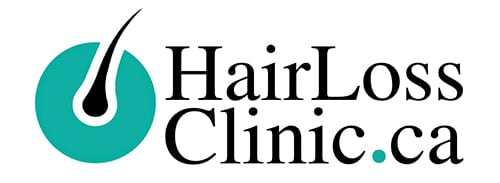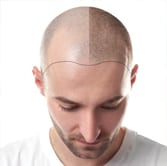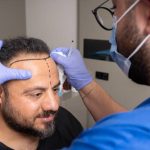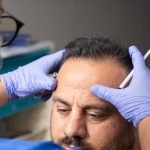November 3, 2023 By simonw Comments are Off
Table of Contents
Propecia 101: An Introduction to the Hair Loss Solution
What is Propecia?
Propecia, the brand name for finasteride, is a prescription drug primarily known for its effectiveness in treating male pattern hair loss, often referred to as androgenetic alopecia. As a potent α-reductase inhibitor, Propecia targets the enzyme responsible for transforming testosterone into DHT (dihydrotestosterone). Elevated levels of DHT are linked with hair loss in men.
History and Development of Propecia
Originally, finasteride, the active ingredient in Propecia, was developed by Merck to treat benign prostatic hyperplasia (BPH). However, anecdotal reports of hair regrowth led to further clinical trials. These trials uncovered finasteride’s potential as an effective treatment for hair loss, and thus, Propecia was born.
Understanding Propecia
The Science Behind Propecia
The fundamental action of Propecia revolves around its capability to block the enzyme involved in transforming testosterone to DHT.
DHT plays a significant role in hair thinning. By decreasing DHT concentrations in the scalp, Propecia aids in slowing down hair loss and, occasionally, encourages hair regrowth. This is good news for men who are battling with the effects of androgenic alopecia.
Propecia: Tablet Formulation and Dosage
Propecia are formulated as an oral tablet, typically prescribed at 1 mg. The tablet contains the active form of finasteride and should be stored at room temperature. It’s crucial to adhere to the dose of Propecia as directed by a healthcare professional.
Uses of Propecia
Propecia for Hair Loss
The primary use of Propecia is in treating male pattern hair loss. Numerous clinical trials and studies have supported its efficacy. Propecia works by counteracting the impact of DHT on hair follicles, which not only reduces hair loss but can also encourage new hair growth.
Other Uses of Propecia
Beyond hair growth, Propecia was originally intended to treat symptoms associated with benign prostatic hyperplasia (BPH). Though there are potential risks, including a debated increased risk of high-grade prostate cancer, it remains a viable treatment option under the supervision of a healthcare provider.
How to Use Propecia
Directions for Effective Use
To achieve the best results, Propecia should be taken once daily. If a dose is missed, do not double up; take the next dose as scheduled. Always read the prescription label for complete details and directions. Consult a medical professional if you have any doubts.
When to Take Propecia
Propecia can be taken with or without food. Consistency is key, so choose a convenient time each day to take the medication.
Benefits of Propecia
The Effectiveness of Propecia in Hair Regrowth
Many men experience a halt in hair loss and regrowth with Propecia. Medical researchers have shown through studies that Propecia can significantly slow the progression of male-pattern hair loss.
Additional Benefits and Positive Effects
Besides promoting hair growth, Propecia has also shown significant results in addressing BPH symptoms. By reducing an enlarged prostate’s size, urinary problems can be mitigated. Furthermore, it’s crucial to recognize potential side effects and consult with a healthcare expert.
Side Effects and Risks of Propecia
Common Side Effects
Propecia, which contains finasteride, has been widely recognized for its efficacy in treating male pattern baldness. However, with its benefits come a variety of side effects. Commonly reported adverse effects include a decrease in sex drive, erectile dysfunction, and a reduction in the volume of ejaculation. Some men also report weight gain while on the medication.
Severe Side Effects and Warnings
While typical side effects can be distressing, there are grave side effects that necessitate prompt medical intervention. These encompass signs of a severe allergic response, like swelling of the face, lips, or tongue, along with hives or trouble breathing. Another pressing concern is liver disease, manifested by symptoms such as nausea, upper abdominal pain, itching, and pale stools. Moreover, the FDA has highlighted a potential association between finasteride and high-grade prostate cancer.
There’s also information pointing towards a potential risk of congenital disabilities when pregnant women come into contact with crushed or broken Propecia tablets. It is, thus, of utmost importance to keep Propecia out of reach of children and away from pregnant women.
Propecia vs Other Hair Loss Treatments
Comparing Propecia and Rogaine
Both Propecia and Rogaine are leading names in the hair loss treatment industry. While Propecia works by inhibiting the 5-alpha reductase enzyme that converts testosterone to DHT, Rogaine, on the other hand, works by enlarging miniaturized follicles and prolonging the growth phase of hair. While Rogaine is available as an over-the-counter topical solution, Propecia requires a prescription. Men often combine both treatments for enhanced results, but it’s essential to discuss with a healthcare professional before combining medications.
Overview of Other Hair Loss Solutions
Apart from Propecia and Rogaine, there are various treatments available for hair loss. These include hair transplant surgeries, laser therapies, and even natural remedies. Each method comes with its own set of pros and cons, costs, and effectiveness levels. An informed decision can be made by discussing with healthcare professionals and researching the latest medical literature.
Real-Life Experiences with Propecia
Success Stories and Positive Reviews
Many men have reported positive results with Propecia, with a significant reduction in hair loss and even regrowth in some cases. These positive accounts underscore the efficacy of the medication.
Discussion on Reported Negative Experiences
However, not all experiences with Propecia are positive. Some men report persistent sexual dysfunction even after discontinuing the medication, and there’s a growing discussion in online forums about the long-term effects of finasteride. While some of these reports are anecdotal, they underline the importance of staying informed and seeking medical help if problems arise.
Q&A
Can finasteride tablets be used to stop hair loss in women, especially those at risk of breast cancer?
No, finasteride is primarily recommended for men. Women, especially those pregnant or at risk of breast cancer, should avoid finasteride as it can affect testosterone levels and have potential risks for an unborn baby.
What could be the cause of hair loss in older men?
The primary cause of hair loss in older men is male pattern baldness, a condition where men experience thinning of the hair due to hormonal changes, primarily reduced testosterone levels.
I’m considering using finasteride tablets. Where can I find a complete list of possible side effects?
Health Canada, as well as the medication’s packaging, provides a comprehensive list of potential side effects. It’s also advised to consult with your doctor or pharmacist for detailed information.
Are there any known drug interactions with finasteride?
Yes, there are certain drug interactions with finasteride. It’s crucial to inform your doctor and pharmacist about all medications you’re currently taking to ensure safety.
Can the use of finasteride lead to any sexual function issues?
Some patients have reported a decrease in sexual function or desire. It’s crucial to discuss potential side effects with your doctor before starting the medication.
I’ve heard about the off-label use of certain prescription medications. Is finasteride ever prescribed off-label?
While finasteride is primarily prescribed for hair loss and prostate issues, there are instances of off-label use. Always consult a doctor before taking any medication.
Can online doctor services provide prescriptions for finasteride?
Yes, many online doctor services offer consultations and can provide prescriptions for various medications, including finasteride, if deemed appropriate.
If I face any medical problems while on finasteride, what should I do?
Should you encounter any negative reactions, particularly a severe allergic response, get medical help right away. It’s also recommended to contact your doctor and inform them of any issues.
What happens when there’s a withdrawal of treatment with finasteride?
Withdrawal of treatment leads to a reversal of effect within 12 months. This means that any hair regrowth or prevention of further hair loss may be undone.
Are there any new medical devices or teams working on alternative treatments for hair loss?
Yes, many teams globally are working on innovative medical devices and treatments for hair loss, ranging from laser therapies to advanced hair transplant techniques. Always keep abreast of recent developments and seek advice from a medical expert.
Conclusion
The Future of Propecia
Research teams around the globe are dedicated to working to enhance the effectiveness of Propecia and reduce its potential side effects. As the medical world evolves with technological innovations and advancements in pharmacology, it is anticipated that newer formulations with heightened effectiveness and safety profiles will emerge. Moreover, alternative treatments like PRP (Platelet Rich Plasma) hair treatment have been gaining traction. PRP is seen as a more natural and safer non-medical alternative, drawing interest from those wary of medicinal interventions. One of the establishments at the forefront of these non-medical treatments is Hairlossclinic.ca, which is committed to offering patients innovative solutions.
Final Thoughts on Propecia Usage
Propecia has been a beacon of hope for countless men battling the woes of hair thinning and loss. Its efficacy is well-documented, and its transformative effects have been experienced by many. However, it’s paramount to approach any treatment, Propecia included, with a well-informed mindset. Considering all available facts, understanding potential risks, and weighing them against the benefits is essential. And above all, it’s crucial to remember that while Propecia offers significant advantages, there are alternative treatments out there, including non-medical ones. Therefore, always consult with a healthcare professional and explore platforms like Hairlossclinic.ca to ensure the best decision is made for individual needs and circumstances.
Book Your Free Consultation Today Or Call (647) 492-9093
Comments are closed.
















